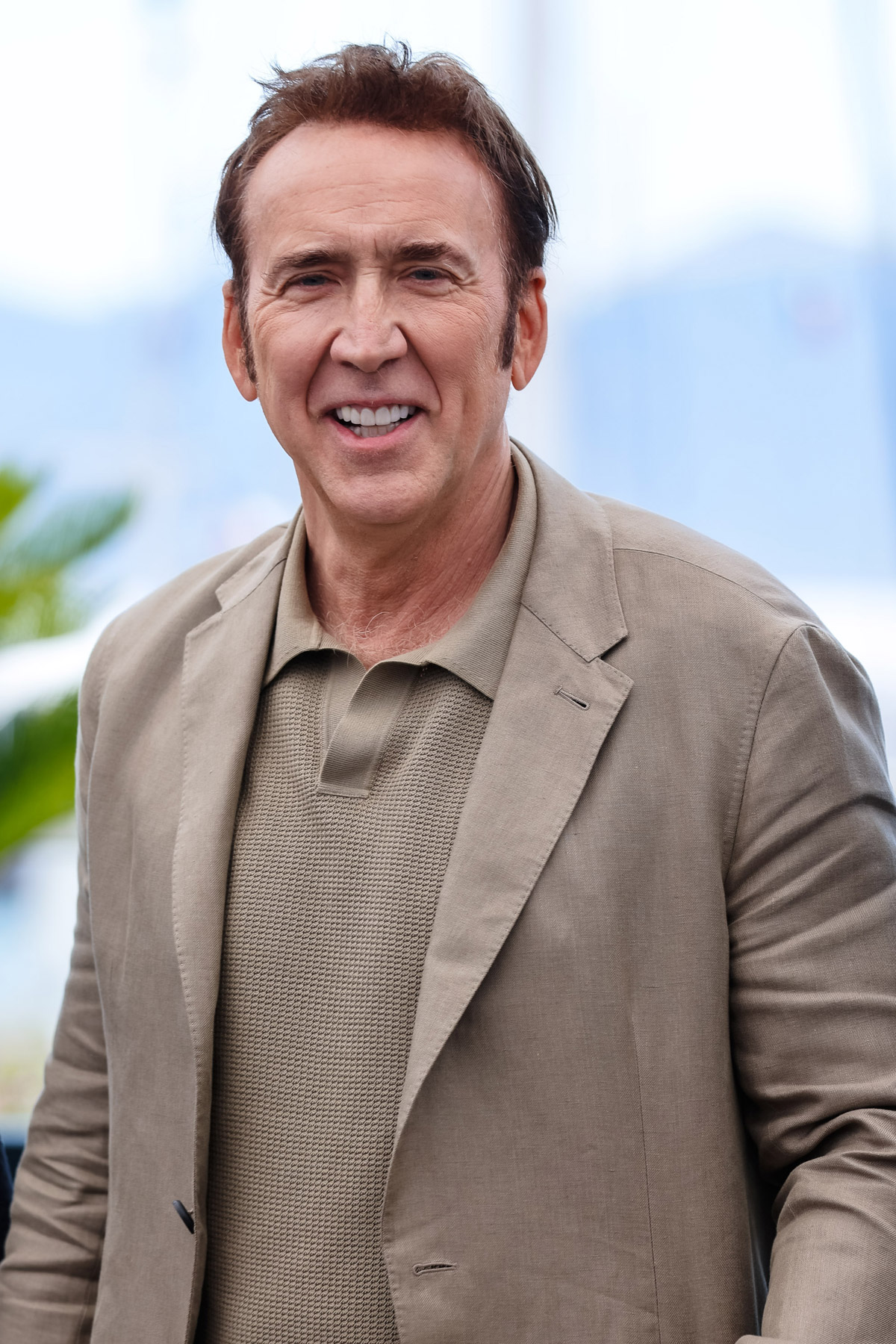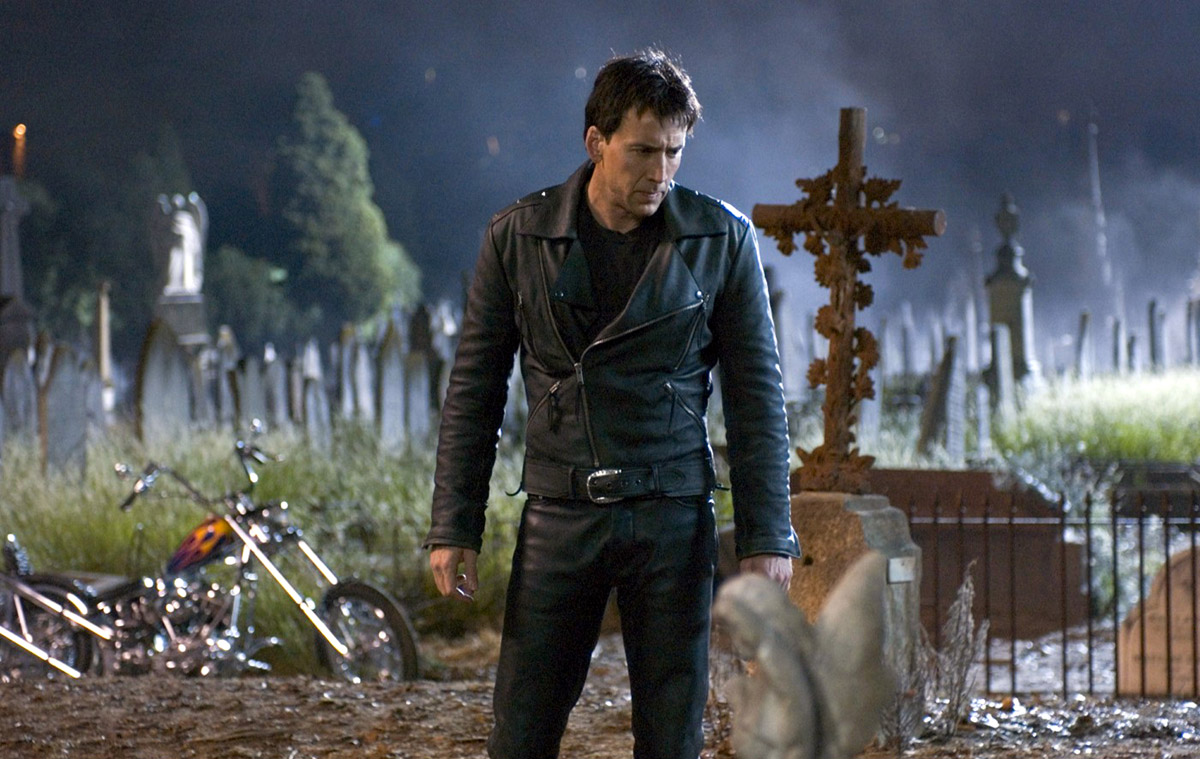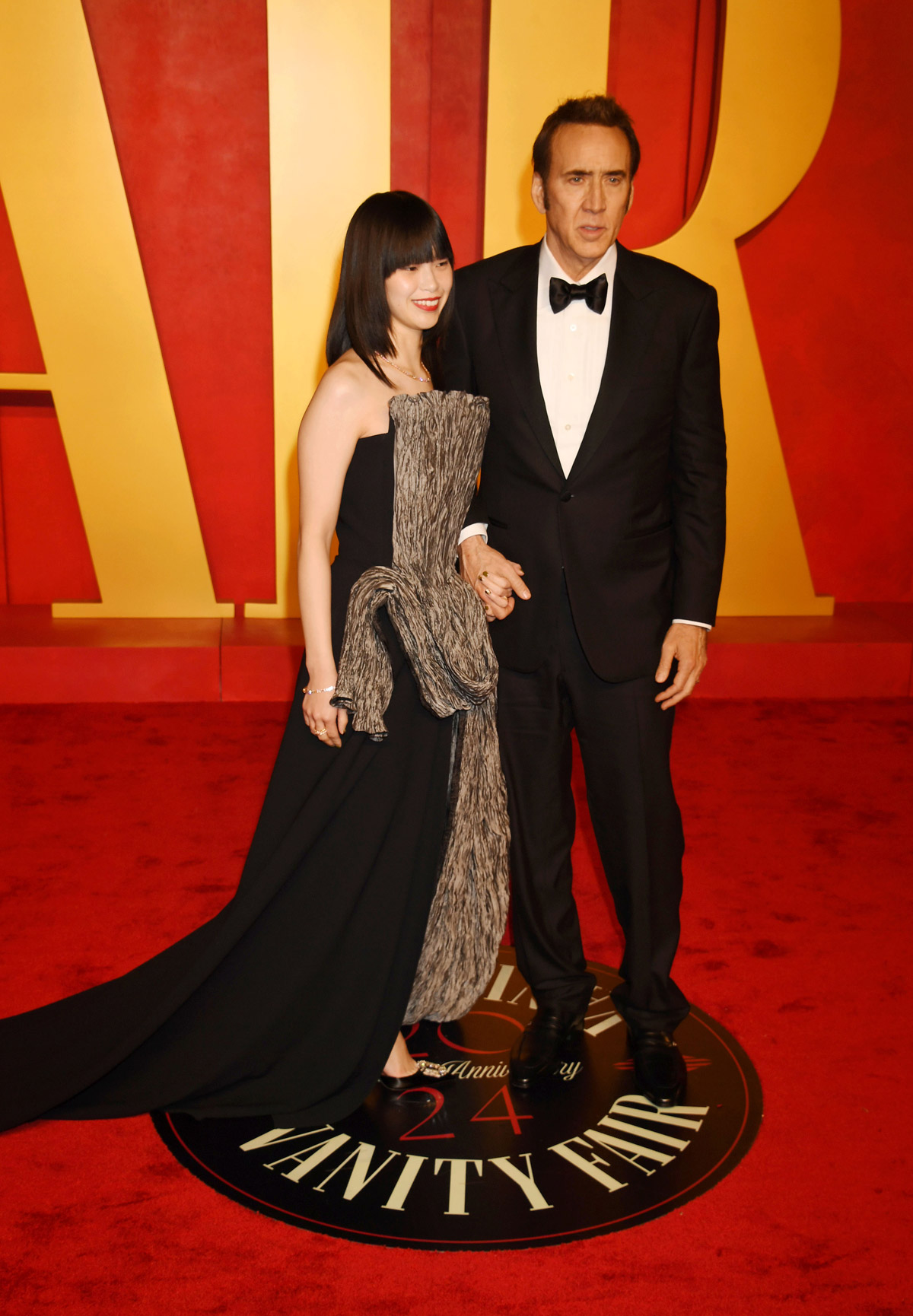
Nicolas Cage is in a horror movie that came out last week called Longlegs. The folks at The New Yorker have done a brilliant thing by having Susan Orlean interview Cage. Orlean, of course, wrote the book The Orchid Thief, which screenwriter Charlie Kaufman made into the wildly imaginative (and barely truthful to the novel) film adaptation called, well, Adaptation, in which Cage played the “character” Charlie Kaufman and his (fictitious) twin brother Donald as he attempts to adapt The Orchid Thief into a screenplay. Still with me? The resulting interview is magnificent, and long! I thoroughly recommend reading it in full, but here are some choice excerpts:
His approach to acting is musical: I think of film performance almost musically. And I want to make different kinds of sounds and put it in my music. It can be totally eclectic. It can be Stockhausen, or it can be punk rock, or whatever it is. … But for some reason the explosive, more operatic crescendos in the performances have made people think that’s who I am.
There’s room for all kinds and styles of acting: Well, you know, acting has gone through phases of what is considered great. And it’s been around for a long time. Somewhere along the way we got obsessed with the nineteen-seventies naturalism style of film performance, which is good. … But that’s not all acting can be. … To me, it’s all different styles. And why not try a little bit of everything? Why get stuck?
On playing twins in Adaptation: There were days where I was literally screaming at the ceiling, going from Charlie to Donald and back to Charlie, and switching and regrouping all the feelings and emotions and attitudes. Like, if I woke up on the wrong side of bed in the morning, I would start with Charlie, but, if I woke up on the right side of the bed in the morning, I would start with Donald, who’s so jovial. The weird thing that I’ve experienced is that people say, “Oh, I just love Donald Kaufman.” And I actually get jealous. Like, I don’t remember that I played Donald Kaufman. I’m Charlie Kaufman. And it makes me really nervous and jealous. I’m like, “How come you like that actor better?” And then I’m, like, “Oh, I am that actor.” It was a head trip.
This gave me chills: But I do feel blessed that I’ve had chances to play an eclectic range of characters — and particularly Longlegs, who is nothing like anyone I’ve played before. For some reason, when I read the script, I heard my mother’s voice. And then I met with [the director Oz] Perkins at the Polo Lounge. And the first thing he said to me was, “Nic, this is a movie about my mother.” And I said, “Well, that’s very interesting, Oz, because I was just thinking that I want to make this character about my mom.”
He has to get two scans for two different projects in one day: Well, they have to put me in a computer and match my eye color and change — I don’t know. They’re just going to steal my body and do whatever they want with it via digital A.I.… God, I hope not A.I. I’m terrified of that. I’ve been very vocal about it. … And it makes me wonder, you know, where will the truth of the artists end up? Is it going to be replaced? Is it going to be transmogrified? Where’s the heartbeat going to be? I mean, what are you going to do with my body and my face when I’m dead? I don’t want you to do anything with it!
Cage has definitely been vocal about his AI fears, like last fall when he described how the cameo scene he filmed for The Flash ended up being an entirely different context around him in the final movie, and how violating that felt to him as an artist. I don’t blame him! Overall what I found so intriguing about this interview was how clearly Cage is so much more than his ascribed public persona of the over-the-top-guy-having-a-breakdown. Orlean herself opens the piece with her impression of him: “In person, he’s courtly, gentle, careful with his words, reflective, and quick to be silly.” I totally see the silly in him! And sometimes his commitment to the intense is itself humorous (I defy you to watch Moonstruck and not laugh at Ronny Cammareri at some point). And he’s soulful too; in describing what qualities attract him to roles, he says he’s looking for something in characters “that makes me feel less lonely in some way.” And yes, Cage does have more than his fair share of crazy, to be sure. So anyone who thinks they can mess around with an AI incarnation after he’s left this earthly plane, I say they better watch out: if anyone could come back from the dead to torment people for using and abusing his corporeal image, it would be Nicolas Cage.
Photos credit: Columbia Pictures via Cover Images, Julie Edwards / Avalon, Olivier Huitel / Avalon, Jeffrey Mayer / Avalon

















He’s artistic, he’s talented and a bit weird.
I adore him. Definitely an original.
Nic Cage is a wild guy but truly just such a great actor. His performance in Moonstruck inspires a wide variety of reviews, but I think it’s the work of a genius. Every time I watch it (which is often), I can’t get over how fully formed Ronnie is as a character (Loretta, too, because it’s Cher at her best). The movie would not hold up if Ronnie was not such an over-the-top nut obsessed with opera. I mean Con-Air? Pig? The Unbearable Weight of Massive Talent is just a delight.